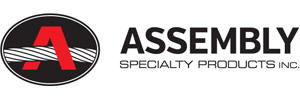Guide to Wire Rope
MENU
- Structural Wire Rope Applications
- Computer-Assisted Design and Detailing
- High Strength Structural Strand
- Custom Finishes
- Pre-stretching
- Striping
- Measuring Wire Rope
- Corrosion Protection
- End Terminations
- Attaching Sockets
- Proof loading
- Order Specifications
- Wire Rope Selection
- Rotation-Resistant Ropes
- Specialized Wire Rope
- Wire Rope Handling and Installation
- Standard Operating Practices
- Wire Rope Inspection
- Technical Info & Specifications
Preformed Wire Rope, Cores, Lubrication & Substitution
Preformed Wire Rope
Preformed means that the wires and strands have been preset during manufacture into the permanent helical form they take in the completed rope.
Preformed wire rope has definite characteristics which are advantageous on most wire rope applications. Preforming greatly reduces internal stresses, eases rope handling, and gives more equal distribution of load on the wires and strands. Preformed rope runs smoother and spools more uniformly on a drum than non-preformed, has greater flexibility and gives longer service life in bending.
Preformed wires tend to remain in position after breaking. This reduces the tendency for them to protrude and damage adjacent wires. Because the wires do not protrude, we strongly suggest greater care and more thorough inspection to detect broken wires in a form-set rope.
Wire Rope Core
Most wire ropes are supplied with either a fiber or steel core. The core is the foundation of a wire rope. Its primary function is to support the wire strands of the rope, maintaining them in their correct relative positions during the operating life of the rope. Fiber cores are ropes made from fibers formed into yarns, then into strands and finally into the finished core form. There are two general types of fiber: natural vegetable material, such as sisal, and synthetic filaments, such as polypropylene.
Steel cores may be an independent wire rope (IWRC) or, in the case of small diameter ropes and some rotation-resistant ropes, a wire strand core (WSC). These steel cores provide more support than fiber cores to the outer strands during the rope’s operating life. Steel cores resist crushing, are more resistant to heat, reduce the amount of stretch, and increase the strength of the rope.
Wire Rope Lubrication
During the manufacture of wire rope products, heated lubricant is applied to individual wires during the stranding operation. Upon customer request, additional lubricant may be applied during the closing operation as well.
Wirerope Works utilizes two standard lubricants during the manufacture of general purpose ropes. N-lube is a petrolatum-based lubricant used primarily in the manufacture of standard wire rope. This type of lubricant prevents rust and corrosion and lubricates against internal wear. W-lube, the standard lubricant used for specialty wire rope, is an asphaltic-based lubricant and rust preventative compound with a large percentage of water-displacing additives and corrosion inhibitors. W-lube is ideal for offshore and land cranes, and logging winch lines.
Rope Substitution
Many equipment manufacturers have established standard or “specified” wire ropes for their products.
Rope substitution is acceptable provided the end user follow the basic design specifications established by the equipment manufacturer:
- Always use the specified rope diameter
- Ensure that the breaking strength of the substitute rope meets or exceeds that of the rope specified
- Always substitute a rope with the same basic characteristics, such as rotation resistance
[gap height="20"]

